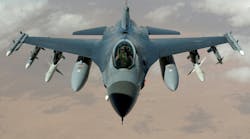by John Rhea
WASHINGTON — As Donald Rumsfeld returns to the Pentagon for another stint as secretary of defense, he has more than the controversial National Missile Defense (NMD) system to occupy his attention. At the top of his list should be deciding what to do about the acquisition reforms initiated by former Secretary of Defense William Perry.
He would be well advised to accelerate those reforms. Initially aimed at the hardware side of defense procurement, they could logically extend to those supporting services that the private sector can better perform. Just as Perry turned the conventional wisdom on its head by requiring program managers to justify the use of military specifications in preference to superior commercial technology, the same logic could apply to such non-military functions as finance and accounting, depot-level maintenance, telecommunications, and non-combat logistics.
In the process, the new administration could resurrect the Base Realignment and Closure mechanism that another of Rumsfeld's predecessors as SecDef, new Vice President Dick Cheney, backed away from under pressure from congressmen representing the affected districts — the so-called Depot Lobby. The taxpayers would gain both ways: eliminating the unnecessary costs of surplus facilities and reaping the savings of competitive procurement for non-military functions.
The acquisition reforms had already begun to lose their momentum before the new administration took office. Secretary of Defense William Cohen, the token Republican in President Clinton's Cabinet, was a short-timer and hardly motivated to fight the in-house battles needed to ram the reforms down the throats of a well-dug in Pentagon bureaucracy.
Rumsfeld was a short-timer, too, in his previous tour of duty at the Pentagon. The former Illinois congressman, ambassador to NATO, and Republican Party stalwart was named by President Ford at the tail end of his administration to replace the acerbic Secretary of Defense James Schlesinger. The level of intramural skirmishing declined markedly during Rumsfeld's tenure, but heated up again when President Carter named former Air Force Secretary Harold Brown to the top Pentagon slot.
There seems to be a pattern here of alternating between activist and business-as-usual defense secretaries, sort of like the way the Vatican chooses its popes, and this may not be a bad idea. The sheer immensity of the defense establishment dictates that it can absorb only a limited amount of radical change.
Nonetheless, Rumsfeld must make some fundamental decisions to transform the Department of Defense (DOD) from its Cold War mentality to a new awareness of information and biological warfare threats. For the Bush Administration, it would be desirable to get an early start on this process while the new president still enjoys cordial relations with Congress.
To their credit, members of the new administration have already made a start. A task force under Rumsfeld's direction is studying these issues in parallel with a congressionally mandated defense review, which must be completed by September. These studies should yield at least tentative decisions by this summer.
In a news briefing last month, Rumsfeld described the studies as ranging "all across the spectrum from terrorism through cyber attacks to information warfare to cruise missiles to short-range ballistic missiles to longer range ballistic missiles and weapons of mass destruction."
Although NMD continues to be the primary focus of media attention, the in-house studies must grapple with issues that could have even more political fallout down the road, such as justifying a new generation of weapon systems. Absent the kind of massive defense spending that characterized the Reagan Administration, it's going to be hard to find money for the F-22 fighter, Joint Strike Fighter, and V-22 Osprey — and prepare to deploy a NMD, as President Bush promised during the election campaign.
Something has to give, and President Bush has already hinted at a new set of military priorities. During the campaign he was critical of American active participation in such peacekeeping activities as those in the Balkans on the grounds that they did involve significant American security concerns. His secretary of state, former chairman of the Joint Chiefs of Staff, Gen. Colin Powell, initially opposed the use of American troops in the Persian Gulf conflict during the administration of Bush's father.
What probably will not — and certainly should not — give is the administration's commitment to increased funding for defense research. During the campaign President Bush promised to commit an additional $20 billion for this purpose through 2006, and Rumsfeld has reaffirmed that commitment. During his confirmation hearings in January before the Senate Armed Services Committee, the new secretary was grilled by Sen. Jeff Bingaman (D-N.M.) on whether he thought U.S. industry could pick up any slack.
"I came out of the pharmaceutical business, where we invest in research and development that is not guaranteed to produce anything in the next five minutes," Rumsfeld testified. "And you have to be patient and you have to live with a lot of failures." He specifically cited electronics as an area of concern.
The common thread running through the changes at the top of the Pentagon is a continued commitment to the so-called offset strategy formulated during the Cold War, in which national leaders count on superior American technology to offset opponents' advantages in numbers, geography, or willingness to take casualties. Like its predecessors, the Rumsfeld team at the Pentagon will have to distinguish between those technologies that are militarily unique — stealth is an obvious example — and thus deserving of government funding, and those that are more efficiently acquired from the private sector.
Now, as the threat proliferates among such lesser powers as Iraq and North Korea, the challenge becomes how to extend that strategy horizontally among other federal agencies that will have an increasing role to play in maintaining national security. The Federal Bureau of Investigation and the Federal Emergency Management Agency, for example, will have to coordinate their activities with the DOD in countering terrorism.
These are the issues, not the only partially defined NMD, that should receive the most attention from the new team at the Pentagon.


